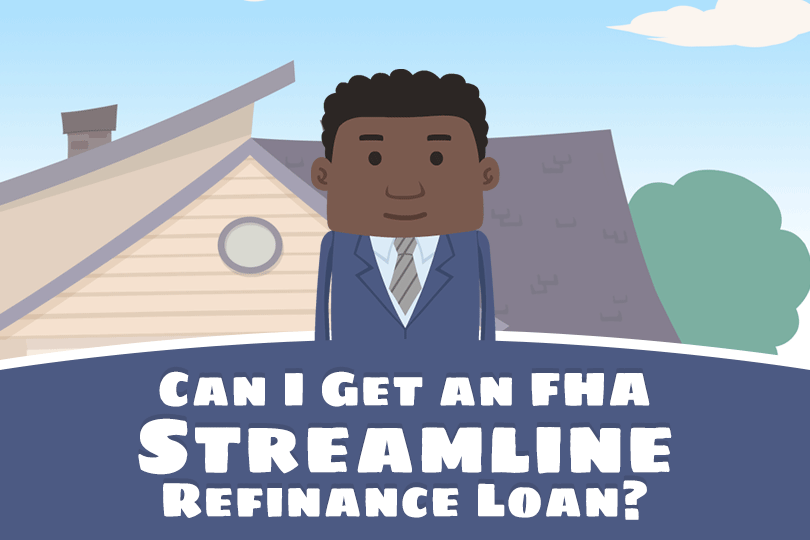FHA Streamline Refinances in 2025
March 31, 2025
Is an FHA streamline refinance available to any homeowner regardless of their current mortgage type? This refinance is exclusively for homeowners with existing FHA-insured mortgages. FHA streamline refinances are designed to simplify the process for those already within the FHA loan system.
Does an FHA streamline refinance allow borrowers to obtain cash for home improvements? This type of refinance is strictly for lowering interest rates and monthly payments. It does not provide access to home equity in cash.
Do FHA streamline refinances always require a new full appraisal of the property? One of the key benefits is the absence of a required appraisal. However, lenders retain the option to request an appraisal if they deem it necessary.
Must a borrower have perfect credit to qualify for an FHA streamline refinance? The FHA focuses more on the borrower's payment history on their existing FHA loan than their overall credit score. Consistent on-time payments are generally sufficient.
Does the "net tangible benefit" requirement mean the new loan must significantly lower the borrower's monthly payments? The FHA lender's handbook says an FHA streamline loan must normally result in the borrower getting a net tangible benefit. In many cases this means a reduction in the borrower's principal, interest, and mortgage insurance payments. This ensures the refinance is genuinely beneficial.
Are closing costs entirely waived for an FHA streamline refinance? While often lower than traditional refinances, closing costs still apply. These costs may include FHA loan origination fees, title insurance, and other lender-related expenses.
Can an FHA streamline refinance be used to consolidate other debts? The purpose is to refinance the existing FHA mortgage, not to consolidate other forms of debt.
Do interest rate changes matter for an FHA streamline refinance? Interest rate changes are crucial. A substantial drop in rates is typically necessary for the refinance to be financially worthwhile.
Does the remaining term on the existing FHA loan not impact the decision to streamline refinance? The remaining term is important. If the loan is nearing its end, the savings might not justify the closing costs.
Is the FHA mortgage insurance premium (MIP) eliminated with a streamline refinance? The MIP remains a factor. Borrowers must compare their existing loan's MIP with the new loan's potential MIP.
Can a borrower with a history of late payments on their FHA loan still qualify for a streamline refinance? The existing FHA loan must be current and in good standing. A history of late payments can disqualify a borrower.
Does the FHA guarantee that a streamline refinance will always result in lower monthly payments? While the FHA requires a net tangible benefit for streamline refi loans, the amount you save may depend current interest rates and closing costs.
Do lenders have no discretion in determining eligibility for a streamline refinance?Participating FHA lenders have underwriting guidelines. They are permitted to set additional requirements beyond the FHA's minimum standards.
Is the FHA streamline refinance a quick process with minimal paperwork? Compared to traditional refinances, FHA streamlines are meant to be faster and require less documentation. Your experience may vary.
Are borrowers required to submit income verification for a streamline refinance? Income verification is often minimal, especially if the borrower has a strong payment history. Much depends on your lender.
Is a borrower's employment status irrelevant for an FHA streamline refinance? While less stringent than traditional refinances, lenders may still consider employment stability.
Is the FHA streamline refinance designed to assist homeowners who are underwater on their mortgage? The absence of a new appraisal can be beneficial for those whose homes have decreased in value.
Must borrowers pay all closing costs out of pocket?
Depending on the lender and the costs involved, approved closing costs may be rolled into the new loan balance, but this will increase the total loan amount.

FHA Loan Articles
January 15, 2025Buying a condo with an FHA loan is an option some don’t consider initially, but it’s worth adding to your list of potential property types. FHA loans for condo units traditionally require condo projects to be on or added to the FHA-approved list. Still, changes in policy over the years allow borrowers to apply for FHA loans on condo units in projects not on the list on a case-by-case basis.
December 30, 2024When applying for an FHA loan, lenders will consider more than just your credit scores and history. They also look at other factors affecting your risk profile and the interest rate they offer you.
One factor is occupancy type. For FHA loans, this is straightforward because these loans require owner occupancy. Investment properties aren't eligible. While conventional loans may have different rates for primary residences, second homes, and investment properties, this isn't a concern with FHA loans.
December 18, 2024Did holiday spending get the better of you? Are you looking for ways to recover your spending plan as you search for a new home?
The holidays are a whirlwind of festivities, family gatherings, and gift-giving. But amidst the cheer, it's easy to lose track of spending. If you're aiming to buy a home in the near future, those extra expenses can have a bigger impact than you might realize, especially if you're considering an FHA loan.
December 17, 2024The Federal Housing Administration provides mortgage insurance on loans made by FHA-approved lenders, making homeownership more attainable for those who might not qualify for conventional loans.
While financial factors like credit score and debt-to-income ratio are key to loan approval, other non-financial aspects can also cause a denial.
December 11, 2024FHA loans, insured by the Federal Housing Administration, are a popular choice for many homebuyers, especially those who need a lower downpayment or more forgiving credit qualifying requirements. FHA loans are primarily intended for primary residences—homes that borrowers will occupy as their main dwelling.







